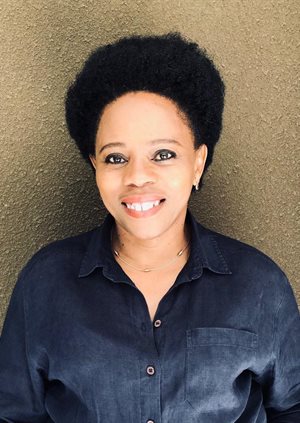For many years, the Estate Agency Affairs Board has threatened to cut off non-compliant property practitioners (estate agents) but, for one reason or the other, they have not, and agents have continued operating. An estate agent becomes an intern whilst they go through the training for their qualifications in order to become full-status estate agents. Disregarding the regulations, today, the property industry has agents that have been interns for over 10 years because they could just continue receiving their Fidelity Fund Certificates (FFCs), which allows them to operate legally.

Matseleng Mogodi, founder and principal, Snooks Estates
2021 saw a continuous drive to ensure that principals of estate agencies were made aware that their non-compliant estate agents may be cut off and cease to operate as estate agents. This means that anyone who has been an intern estate agent for more than two years will be disqualified and may not operate. The reason why most non-compliant estate agents have continued to operate, albeit knowing the consequences, is that it has always been all talk, however, this has now come back to bite the sector.
Transforming the industry
At the same time there has been a great attempt to bring transformation to the property industry by increasing the number of Black property practitioners. These numbers have somewhat increased, but because of non-compliance, we may not know the true number at this stage. According to EAAB chief executive Mamodupi Mohlala, 10,455 (22.7%) of South Africa’s registered estate agents are Black (including Indian and Coloured, as per the Property Charter), with the majority still training as interns and many more trading illegally. A large percentage of estate agents still remains mainly White.
Just over 10 years ago, I co-founded and chaired the now defunct Black Estate Agency Forum South Africa (BEAFSA) - the main intention was for Black estate agents to empower themselves through education. Furthermore, it aimed at leveraging skills within the members to ensure that Black property professionals can rise up and compete for work with the right tools. This organisation’s intention was also to attract young talent by cleaning up the industry and making young people see the potential of the real estate industry and the possibility of creating wealth for themselves and their families. The truth and the reality is that we were probably not ready mentally because after the merge with the National Property Forum (NPF), we still did not achieve the educational objectives that BEAFSA had set.
Dispelling the entitlement mentality
The drive by the EAAB to disqualify long-term intern estate agents that are not qualified by 30 June 2022 has catalysed many organisations to get their qualifications, and if they stick to this, they can transform the industry in a true sense. Information is not knowledge, anybody can gather information, but few have knowledge. Therefore, getting into the trenches of learning will also start to make estate agents really see that they work for themselves within the agency. It will start to dispel the entitlement mentality that the ‘boss’ must look after ‘me’ and they will start to see opportunities that as an estate agent, one is already running their own business. As Tholo Makhaolo, president of the South African Institute of Black Property Practitioners (SAIBPP), says, "Black people need to be thought leaders and not just taken on as employees... We must lead opinion.”
This new dispensation will undoubtedly push for compliance, which will lead to self-confidence, and when one is armed with this kind of knowledge, they can only rise further. This could be the strong base to get people ready to jump into leadership positions in other property sectors that will support the estate agency value chain. According to Polo Letaka, chairperson and founder of entrepreneurial financier and advisory firm IDF Capital, more Black professionals are needed in top management positions of powerful organisations, such as banks.
Handling real estate challenges
Learned estate agents will be able to expand their creativity in dealing with real estate challenges. In the later part of 2021, TPN’s Michelle Dickens reported in her “Essential Industry Insights” that the number of mortgages being granted by banks has remained stable over recent years at 140,000 – 160,000 mortgages being granted per annum. In 2020 and the first six months of 2021, 70% of property transactions were underpinned by mortgages. As we know, this might change, and requires estate agents that are confident in their real estate knowledge and knowledge of industry regulations to deal with these challenges.
In the BEAFSA years, in my attempt to encourage estate agents to be more professional and qualified, I posed a question to the group of estate agents and asked, ‘If you were a property developer, would you hire any one of us in this room?’ The purpose of the question was to point out that unless we stepped up in all aspects of business, we would have to always pick up the crumbs. Knowledge and education builds experience, which leads to being the best in the industry.
Main trends for estate agents in 2022
- The statistics will change dramatically with the number of previously disadvantaged individuals becoming estate agents and new entrants increasing. However, the industry may lose a lot of older experienced estate agents who are not willing or able to undergo the trainings to qualify. When there are more qualified estate agents, there will be improvement in the quality of service, and an improvement in the quality of life for estate agents, which will in turn attract committed young people to the industry.
- More estate agents will start their own real estate practices because they have experience and the qualifications, and because there are more qualified agents, the market may see improved service and professionalism. With the relationships they may have built over the years, these estate agents can start to avail themselves and offer their services to repeat home buyers, and this can be a great base for their business.
- Virtual work will be on the rise because, in a true sense, people want the ease of viewing properties from the comfort of their own home, and only have a physical viewing when they have made their choice. This also means running the practice largely virtually but not completely doing away with human interaction which is important for emotional and mental wellbeing.
- Banks will still be cautious because of the after-effects of the lockdown. This will allow estate agents to step up and help homeowners, either educating them on how to save their properties or selling if there are no other options.
- More online training will continue to help estate agents to qualify. Most companies are already doing online meetings and staff training.
- Income for estate agents from rentals will improve as the market is showing some recovery.

















































